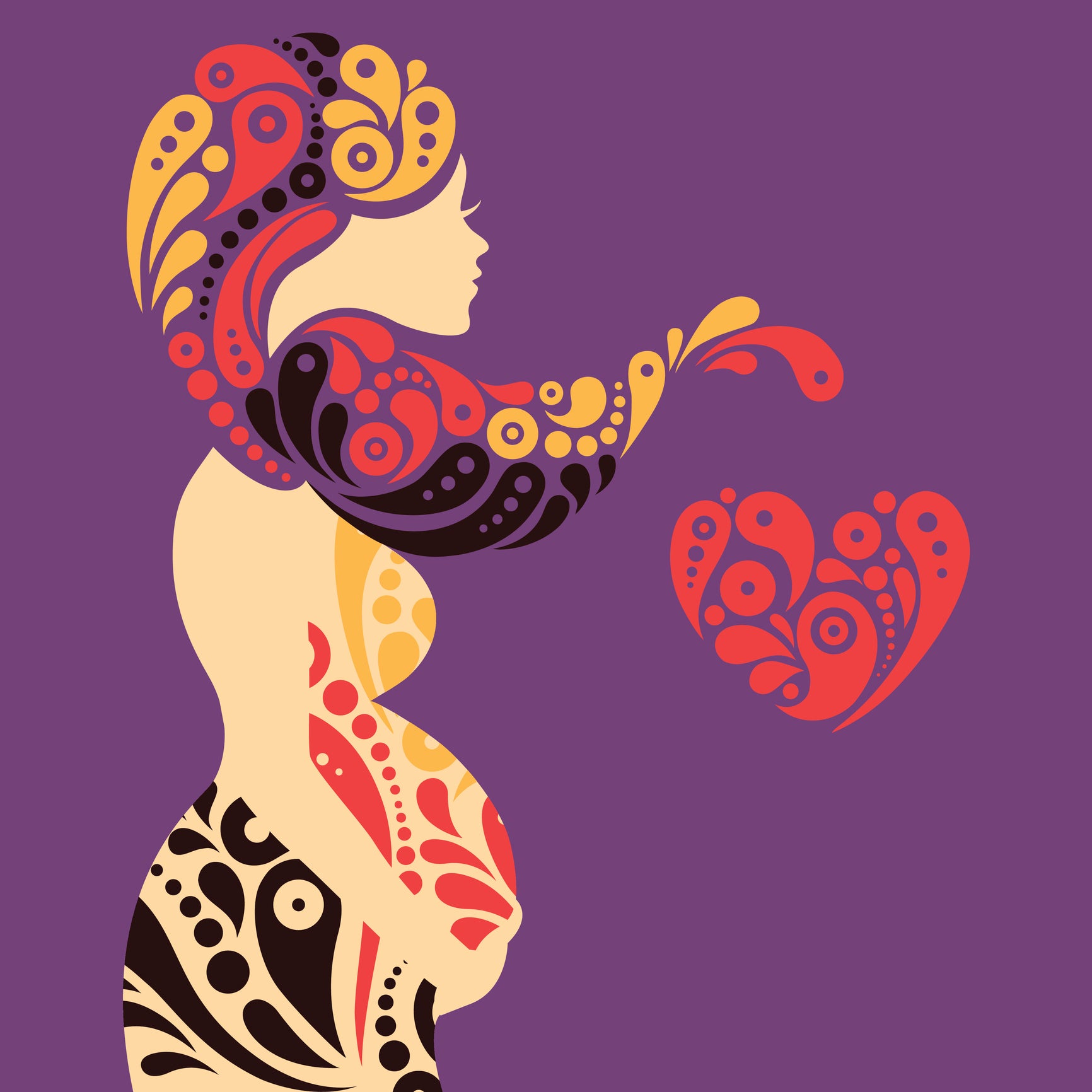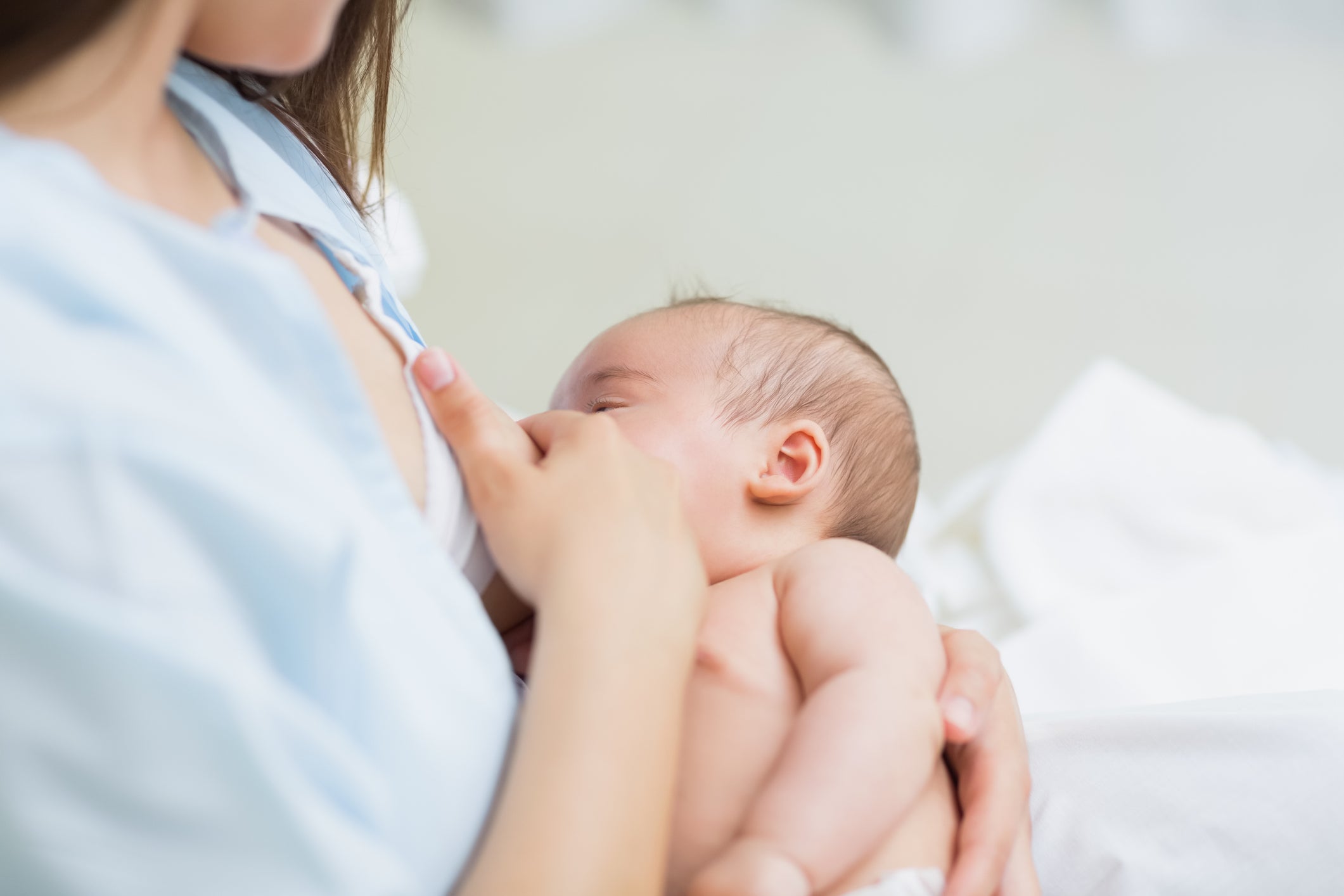What it’s like to be a doula: ‘People think we bang drums, chant or use incense’
Following rumours the Duchess of Sussex has employed a doula for her first pregnancy, Katie O’Malley speaks to a doula about the caring profession increasing in popularity


Your support helps us to tell the story
From reproductive rights to climate change to Big Tech, The Independent is on the ground when the story is developing. Whether it's investigating the financials of Elon Musk's pro-Trump PAC or producing our latest documentary, 'The A Word', which shines a light on the American women fighting for reproductive rights, we know how important it is to parse out the facts from the messaging.
At such a critical moment in US history, we need reporters on the ground. Your donation allows us to keep sending journalists to speak to both sides of the story.
The Independent is trusted by Americans across the entire political spectrum. And unlike many other quality news outlets, we choose not to lock Americans out of our reporting and analysis with paywalls. We believe quality journalism should be available to everyone, paid for by those who can afford it.
Your support makes all the difference.“People think we bang drums, chant or use incense,” jokes London-based birth and postnatal doula Leila Baker. “There are doulas who do that but that’s not every doula.”
Baker and I are chatting just days before the Duchess of Sussex is expected to give birth to her first child. In the lead up to the royal baby’s arrival, it has been widely reported Ms Markle has hired a doula to be a part of her birth team.
If the rumours of Ms Markle employing a doula to be true, Baker says “it can only be a good thing” for both her profession and the royal. “It would be lovely if Meghan Markle did have one because it will hopefully make her have an incredible calm and supportive birth,” she says.
“I hope it will have a hugely positive difference on the rest of society. Generally if the royals do it, everyone else wants to do it.”
According to non-profit association Doula UK, doulas act as birth coaches, offering practical and emotional support in women’s own homes as well as in hospitals. They are usually experienced women who have completed some basic training in birthing practice and completed a certification process.
Historically, this type of labour support has be used since the Greeks in ancient times, with the term “doula” originating from the Greek word for “slave” or “woman of service” and widely understood to mean someone who assists a mother with breastfeeding after giving birth.
In modern times, the profession has become widespread across the world with evidence showing that having a doula can reduce to risk of caesarean, instrumental birth or induction and reduce the need for painkillers or epidural during birth, according to Doula UK. They have also been credited with shortening labour and lowering incidence of postnatal depression (PND).
As for her decision become a doula, Baker says she became acutely aware of the lack of information she had to manage her expectations during the birth of her first child.
Despite planning a home birth, soon into the labour Baker says she “ended up panicking and asked to be transferred to a hospital”. As a result of this experience, the mother-of-five became a birth doula in 2016 following the birth of her fourth child and employed a doula for her fifth.
Following her first pregnancy, Baker says she became acutely aware of the lack of postnatal support after giving birth in hospital and decided to have her subsequent four births at home. Baker became a birth doula in 2016 after the birth of her fourth child and employed a doula for her fifth.
“My husband couldn’t understand why I wanted a doula given that I am one, but I explained that we should all have doulas, regardless of how many times we have children or our personal experiences,” she says.
Baker now works in south London as a doula, trained Breastfeeding Peer Supporter and a qualified massage therapist. Over the years, she has assisted 40 families.
Describing her role, Baker says she “provides informational, loving, non-judgmental support and practical help” to her clients.
“If bags need carrying, if something needs researching, if a back needs rubbing, we’ll be there to provide that support,” she adds.
My husband couldn’t understand why I wanted a doula
While it is not a legal requirement to register with an organisation to employ a doula, the majority of families in the UK choose to find a doula through Doula UK which has a directory of close to 700 members.
Baker describes the process of finding a doula as being “a bit like dating”.
“You see if you like the sound of someone’s profile, you’re looking for a click – some kind of fit between you and your doula.”
As a result, it’s common practice for a woman to have a phone conversation with a prospective doula and meet two or three in advance to see whether they have a good rapport.
“We have this phrase ‘it’s not about me’,” Baker says. “It doesn’t matter what I want or think is best, it only matters what the client feels is best for their family. For me, it’s about making sure that family has informed choices about the care they’re receiving.”
In advance of labour, Baker will normally conduct two or three sessions “to help a family work out what they want from a birth and how best to achieve that”. Ahead of the sessions, she will also send them three templates of birth plans.
“The style of templates are very different,” she says. “One is provided by the NHS, one is designed by a famous antenatal education provider, and the other one is pictorial.
“Parents might not have thought about who they want to cut the cord, or what they want to do with the placenta until they’re asked the question. A lot of my work is about managing people’s expectations as to what is or isn’t normal.”
During these sessions, Baker also says it’s important to give soon-to-be-parents a chance to acquire a base knowledge of breastfeeding.
It’s about making sure that family has informed choices about the care they’re receiving
According to research conducted by UNICEF last year, the UK is among countries with the lowest breastfeeding rates in the world. Meanwhile, one in three women confessed to feeling embarrassed to do so outside of their homes, according to a 2015 survey by Public Health England’s (PHE’s) parenting advice service, Start4Life.
As a result, Baker stresses the importance of helping women learn about the process as soon as possible into a pregnancy.
“Breastfeeding is a tricky settling in period because women aren’t always full informed in advance,” she says.
“Breastfeeding is something we’re born to do as mammals but it doesn’t mean it’s easy. Because we don’t live in a society where it’s as common as it could be, where we don’t see it, we don’t know what to anticipate and what’s normal.”

For her birth clients, Baker says she will generally be on call for four weeks – two weeks prior to a baby’s birth and two weeks after.
“We’re on call 24/7,” she says. “It’s a difficult career to base a life around but I have a very supportive family – most of us do – and childcare that can step in at the last minute.”
However, Baker says the satisfaction of the job far outweighs its demands. After all, she knows all too well the lasting impact a doula can have on a birth, given her own experience with employing one during her pregnancy with her fifth child.
“She made everything better for me,” Baker says of her doula. “She knew exactly what I wanted, she knew me, she’d spent many more hours with me than the midwife in the room who had never met me before.”
Which celebrities have used doulas?
Several high-profile celebrities have revealed they employed a doula before, during and after their pregnancies.
A-listers including singers Idina Menzel, Alanis Morisette, Kelly Rowland and model Doutzen Kroes have spoken openly about their use of a doula.
In 2008, actor Nicole Kidman revealed in an interview with Oprah Winfrey that she had hired a doula while pregnant with her first child, daughter Sunday Rose, with whom she shares with singer Keith Urban.
In 2014, actor Mila Kunis opened up about her birthing plan for her first pregnancy with daughter, Wyatt Isabelle Kutcher
Lying head-to-head and holding her doula’s hand throughout the labour made “every stress and worry go away”, Baker adds.
“She was able to protect me from everything else that was going on in the room at the time, giving me her undivided attention,” she notes.
Discussing what happens during a birth, be it in a hospital or a client’s home, the role of a doula is not to speak for the people they’re supporting, states Baker.
“Rather, we can remind them what it is that we have discussed antenatally and that what the hospital staff might be suggesting may be part of routine, rather than individualised care.”
While doulas offer support to women before, during and after birth, it’s worth noting that they do not offer clinical skills and are not medically trained.
From Baker’s experience, it is rare for doulas and medical staff to come at loggerheads when it comes to a mother’s care. However, she says it can be “unpleasant” when it does occur.
“I remember it happened once with a midwife and she turned her back to me while I was speaking. When she left, the father apologised on her behalf.”
More often than not, Baker attributes negative attitudes towards doulas to misconceptions as to what the profession entails.
“We’re not trying to take over from the midwife, rather support the midwife,” she notes. “Once they realise that, if they didn’t before, they’re very welcoming.
“Sometimes there’s a misconception we’re wannabe midwives or that we don’t like midwives and doctors. As far as I’m aware, none of that is true.”
While doulas have been privately supporting families for centuries, they’re increasingly becoming common in public sectors.
Last month, New York’s Department of Health launched a pilot program on to allow Medicaid to help cover their services for low-income pregnant women. The news comes after DONA International, the world’s first, largest and leading doula certifying organisation based in the US, accredited 37 percent more postpartum practitioners between 2012 and 2017.
But it’s not only in the US where the popularity of doulas is increasing. In 2013, Chelsea and Westminster Hospital announced it had become the first hospital in the country to employ doulas to support women on its birthing unit.
However, their work both in and out of the delivery room has long been disputed. In 2009, anaesthetist Dr Abhijoy Chakladar wrote in the British Medical Journal that the presence of doulas during labour “may alter the doctor-patient dynamic”.
Sometimes there’s a misconception we’re wannabe midwives
Dr Chakladar added: “As the trend grows, a cynic might ask whether the doula business is actually necessary or whether it is exploiting – for profit – unspoken fears about NHS perinatal care.”
Baker charges clients between £1,200 to £1,400 for her birth doula services, with optional extras including pregnancy and baby massage. Meanwhile, her postnatal work can cost £18 to £25 per hour.
However, Baker refutes suggestions that doulas are an unnecessary expense.
“What price can you put on the feeling of being supported through a birth?” she asks.
“It’s not that doulas aren’t necessary, it’s an expense, but unfortunately the NHS can’t provide that.”
It’s a belief previously echoed by Louise Silverton, former deputy general secretary of the Royal College of Midwives (RCM) who said that doulas are providing a service that midwives should be able to offer but can’t due to staff shortages.
“The pressure of work means that too often midwives simply do not have the time to provide the kind of emotional support that doulas are offering.”
When it comes to her job as a doula, Baker says it’s an experience like no other.
“It’s amazing to be able to watch people become parents – the look a mum or dad’s face the first time they see their child is just so beautiful,” she says. “Not everyone gets to see that – I’m very privileged.”
Find more information about doulas on Doula UK and National Childbirth Trust.
Join our commenting forum
Join thought-provoking conversations, follow other Independent readers and see their replies
Comments